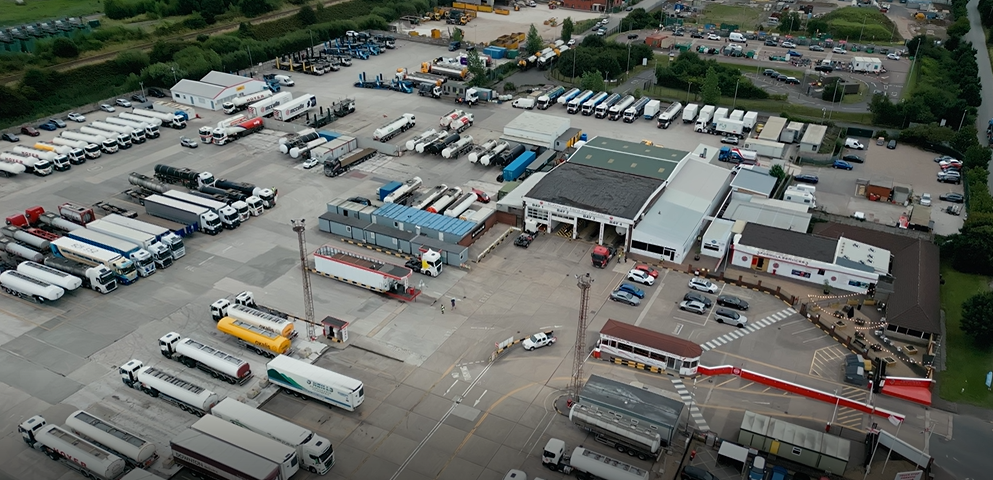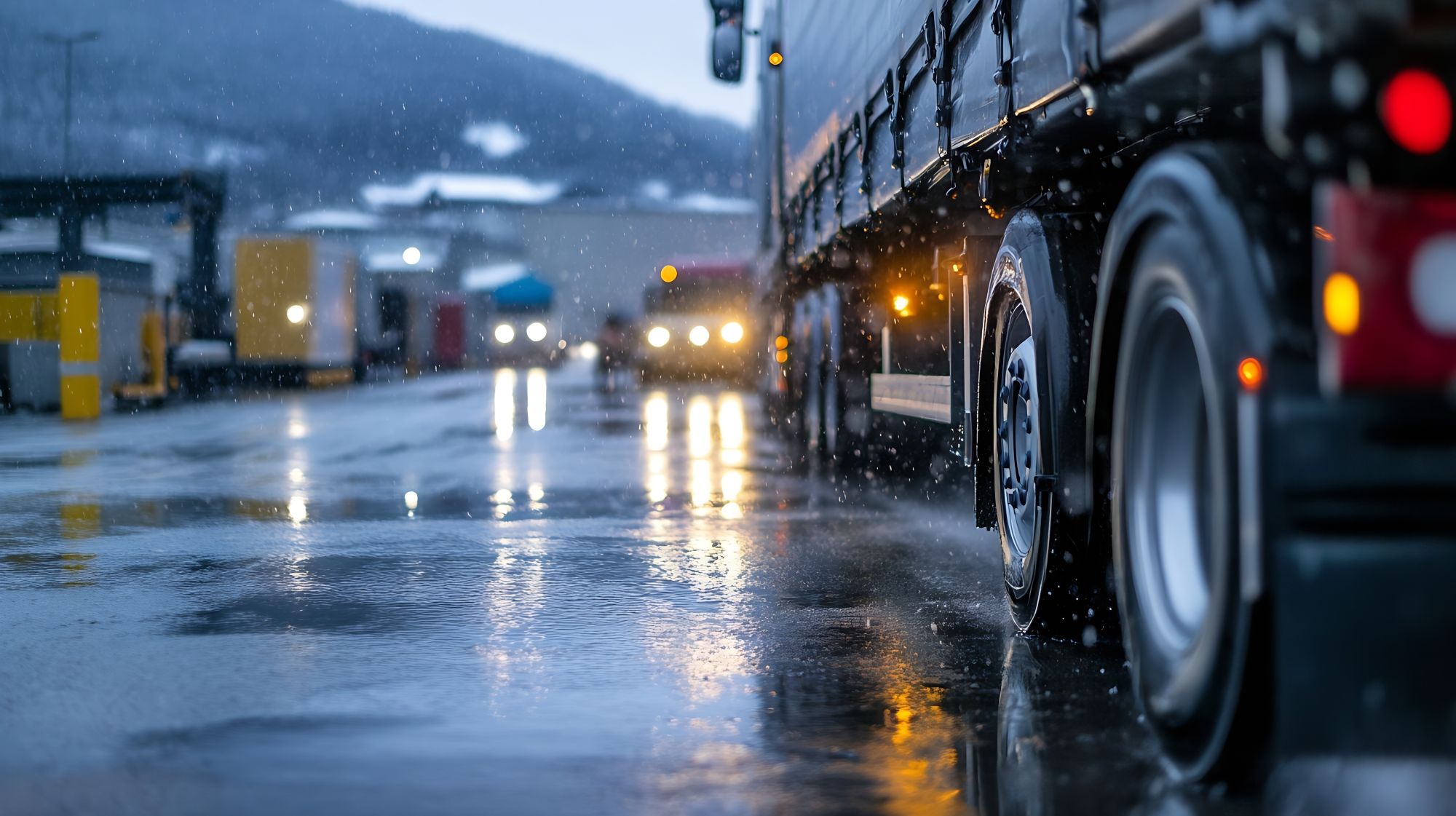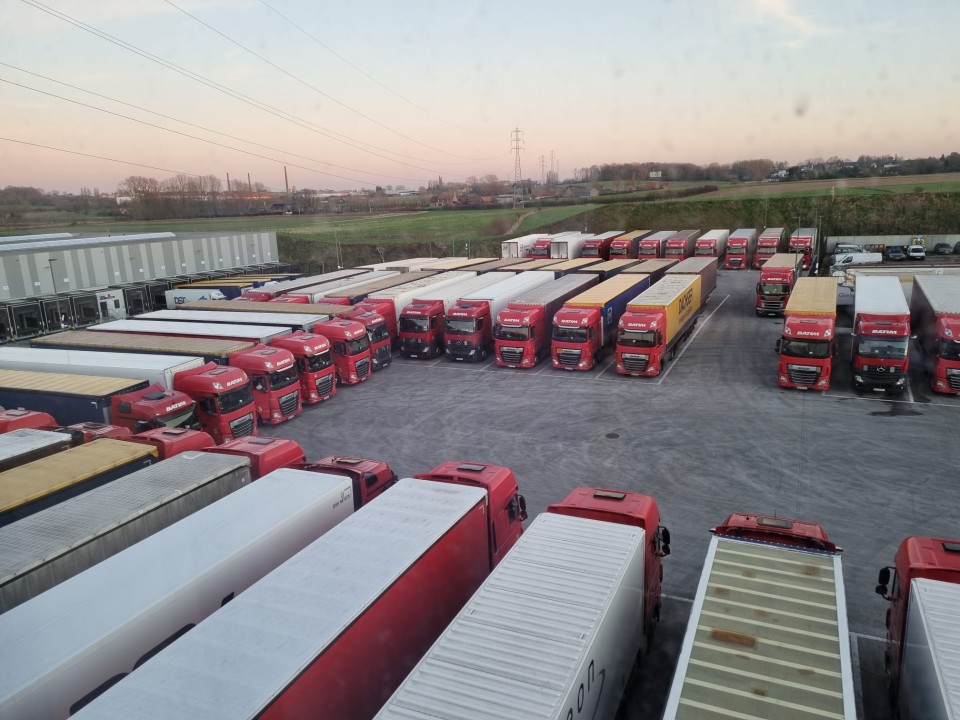
Susie Jones
SNAP-reis van Batim International Transport & Spedition
Gemaakt: 19-02-2025
•
Bijgewerkt: 19-02-2025
Batim International Transport is opgericht in 1995 en levert transport- en expeditiediensten in heel Europa. Het bedrijf is trots op de uitstekende kwaliteit en een ultramodern wagenpark dat bestaat uit SCANIA- en Mercedes-voertuigen.
Het bedrijf heeft zijn hoofdkantoor in Stary Sącz, Polen, en is geen vreemde op het gebied van groei. Batim begon in het begin met twee trekkereenheden en heeft er nu meer dan 500.
In deze korte tijd verwierf het bedrijf vele erkenningen en certificaten, waaronder de erkenning van Beste Werkgever van het Jaar 2014 en Forbes Magazine in 2015. Door het wagenpark uit te breiden en de diensten te verbeteren, streeft het bedrijf voortdurend naar groei.
Batim International sloot zich in de begindagen aan bij SNAP en gebruikt nog steeds zijn SNAP-account om in heel Europa parkeerplaatsen te reserveren voor zijn grote vloot. We spraken met Operations Manager Krzysztof, die vertelt over de ervaringen van het bedrijf met SNAP.
Voordelen van SNAP voor vloten
SNAP biedt vloten meer dan 450 servicepartners in heel Europa waar ze onze betaaloplossing voor wagenparken kunnen gebruiken. "We zijn lid geworden van SNAP omdat we geen contante transacties nodig hebben", legt Krzysztof uit.
Een voordeel voor veel vloten omdat SNAP een betaaloplossing biedt om zonder contant geld of een kaart te betalen voor vrachtwagenservices. Deze betaaloplossing kan worden gebruikt voor zaken als het wassen van vrachtwagens, Dartford Crossing en het parkeren van vrachtwagens. Vooral dat laatste, aldus Krzysztof, is een groot voordeel.
"SNAP heeft me geholpen door me de mogelijkheid te geven om een parkeerplaats te reserveren, zodat ik me geen zorgen hoef te maken over een plek voor de chauffeur."
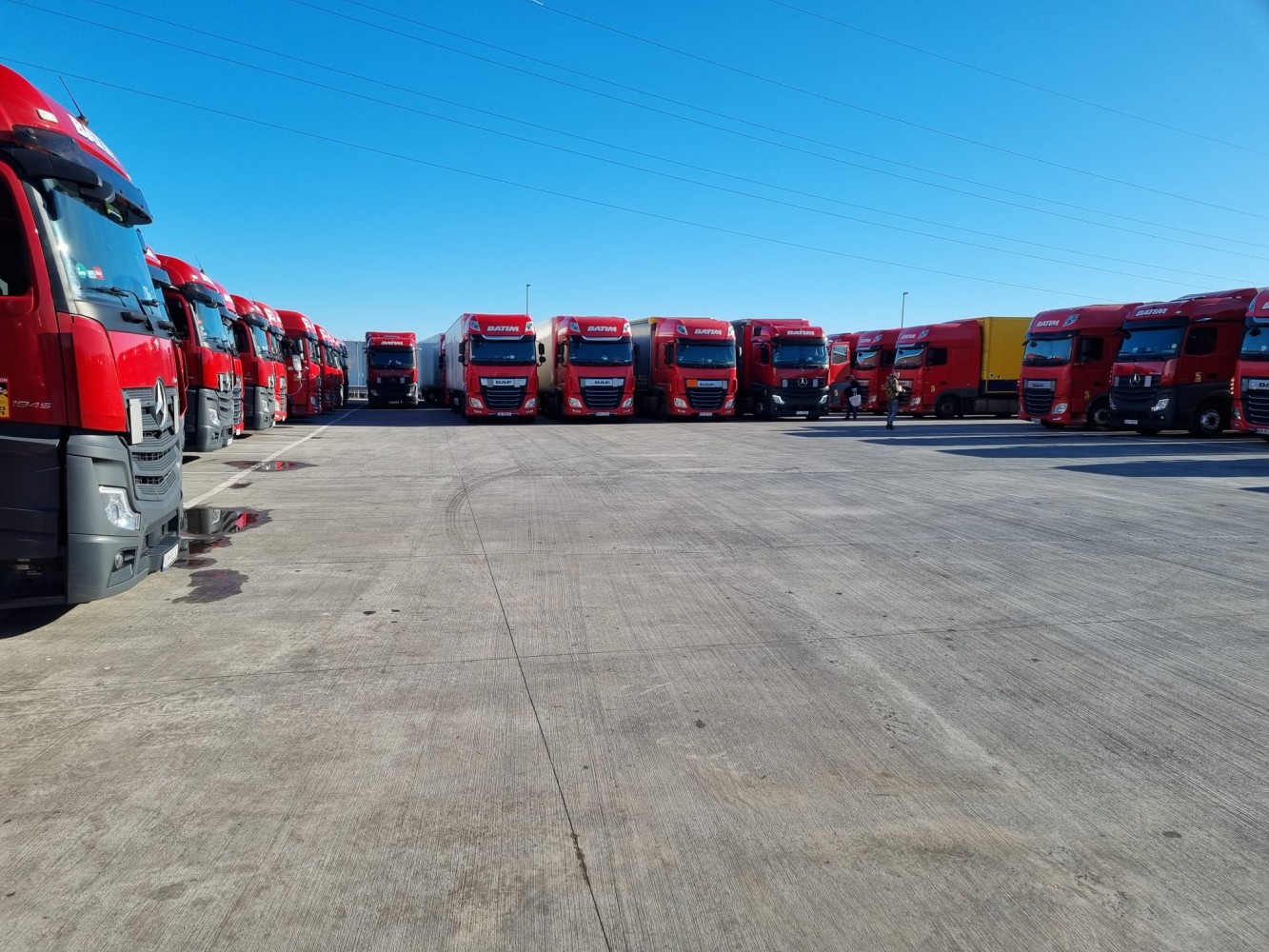
De mogelijkheid om een servicepartner voor truckstops te zoeken via SNAP was ook een voordeel voor Krzysztof. Hij legt uit dat "de mogelijkheid om alle gedetailleerde informatie over vele truckstops in verschillende landen te controleren en te vinden, om er zeker van te zijn dat alles aanwezig is wat nodig is met betrekking tot bepaalde vracht en faciliteiten voor de chauffeurs" voor hem een van de nuttigste functies is geweest.
Daarnaast heeft SNAP enorme voordelen voor de chauffeurs van Batim. De vloot chauffeurs van Krzysztof kan gerust zijn in de wetenschap dat ze kunnen kiezen uit een groot netwerk van truckparkings en depotparkeerplaatsen. Krzysztof zegt dat het "grote netwerk van truckparkings" van SNAP van onschatbare waarde is geweest.
Veel bedrijven over het hele continent hebben hun inkomsten uitgebreid met ons Depot Parking Scheme. Met dit programma kunnen wagenparken hun depotparkeerplaatsen aanbieden aan het netwerk en zo extra geld verdienen - door chauffeurs te helpen kwetsbare uitwijkhavens en industrieterreinen te vermijden. Batim International helpt het Europese parkeertekort te verlichten door zich met hun depot in België aan te sluiten bij deze regeling. De locatie biedt 20 parkeerplaatsen voor andere chauffeurs wanneer hun vrachtwagens onderweg zijn.
Invloed van SNAP-servicepartners op het welzijn van chauffeurs
Het welzijn van chauffeurs is een veelbesproken onderwerp binnen de vrachtwagenwereld. Als veeleisend beroep is het niet moeilijk om te zien hoe lange uren, sociaal isolement en een zittende levensstijl de mentale gezondheid kunnen beïnvloeden.
Vloten hebben de verantwoordelijkheid om voor het welzijn van hun chauffeurs te zorgen. Maar ook truckstops kunnen een belangrijke impact hebben. Depotparkeerplaatsen en truckstops met basisvoorzieningen kunnen het welzijn van de chauffeurs aanzienlijk verbeteren. Iets wat volgens Krzysztof en het team van vitaal belang is voor hun vloot van meer dan 800 chauffeurs.
Op de vraag wat truckstops kunnen doen om het welzijn van chauffeurs te verbeteren, zegt Krzysztof: "Chauffeurs hebben voornamelijk een schone douche en toilet nodig." Dit lijkt voor velen een eenvoudige oplossing, maar de impact die het kan hebben op de ervaring van een chauffeur is aanzienlijk.
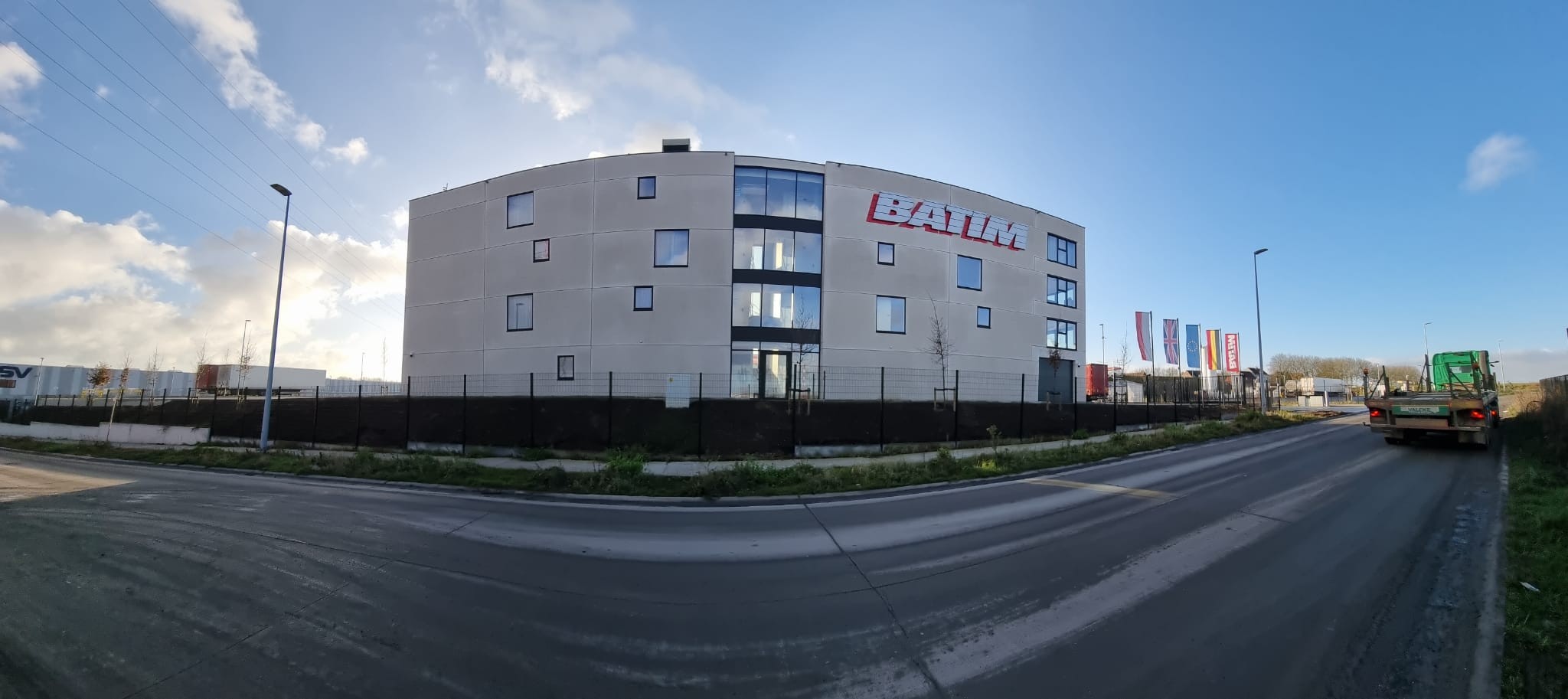
Klantenservice met SNAP
Bij SNAP zijn we er trots op dat we vloten en chauffeurs de ondersteuning bieden die ze nodig hebben om efficiënt en effectief te werken. Ons ervaren Customer Service & Account Management team helpt vloten en chauffeurs met al hun vragen. Iets wat Krzysztof en het team nuttig hebben gevonden.
"We hebben contact opgenomen met de klantenservice van SNAP - zowel via e-mail als aan de telefoon. We hebben altijd een individuele benadering gekregen met betrekking tot een enkel geval, begrip en goede wil van de medewerkers van SNAP om zoveel mogelijk te helpen", legt Krzysztof uit.
Meld uw wagenpark vandaag nog aan voor SNAP
Onze betaaloplossing voor wagenparken wordt elke 13 seconden gebruikt om te betalen voor vrachtwagendiensten. Bezoek snapacc.com en sluit u aan bij de meer dan 7.000 wagenparken die SNAP Account gebruiken als hun alles-in-één oplossing voor wagenparkbetalingen.


